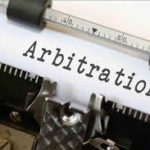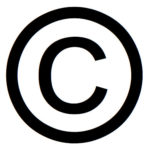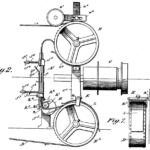Volume 72 Category
The Arbitration-Litigation Paradox
May. 31, 2019—Pamela K. Bookman | 72 Vand. L. Rev. 1119 (2019) | The-Arbitration-Litigation-Paradox The Supreme Court’s interpretation of the Federal Arbitration Act is universally touted as favoring arbitration. Its arbitration cases and decisions in other areas are also viewed as supporting the Court’s more general hostility to litigation. These pro-arbitration and anti-litigation policies can be mutually...
Reconceptualizing the Role of Intellectual Property Rights in Shaping Industry Structure
May. 31, 2019—Peter Lee | 72 Vand. L. Rev. 1197 (2019) | Reconceptualizing-the-Role-of-Intellectual-Property-Rights-in-Shaping-Industry-Structure Technological and creative industries are critical to economic and social welfare, and the forces that shape such industries are important subjects of legal and policy examination. These industries depend on patents and copyrights, and scholars have long debated whether exclusive rights promote industry consolidation...
Public Relations Litigation
May. 31, 2019—Kishanthi Parella | 72 Vand. L. Rev. 1285 (2019) | Public-Relations-Litigation Conventional wisdom holds that lawsuits harm a corporation’s reputation. So why do corporations and other businesses litigate even when they will likely lose in the court of law and the court of public opinion? One explanation is settlement: some parties file lawsuits not to...
The Authorization Continuum: Investigating the Meaning of “Authorization” Through the Lens of the Controlled Substances Act
May. 31, 2019—Breanna C. Phillips | 72 Vand. L. Rev. 1335 (2019) | The-Authorization-Continuum Federal prohibitions are ubiquitous in society. These prohibitions may be absolute, providing no exceptions, or they may be qualified, providing exemptions that allow specified parties to avoid a law’s reach. The power to exempt parties from a prohibition is not limited to the...
Winding Back Wayfair: Retaining the Physical Presence Rule for State Income Taxation
May. 31, 2019—Nathan Townsend | 72 Vand. L. Rev. 1391 (2019) | Winding-Back-Wayfair-Retaining-the-Physical-Presence-Rule-for-State-Income-Taxation In 2018, the U.S. Supreme Court decided South Dakota v. Wayfair, Inc., a case abrogating the physical presence rule from Quill Corp. v. North Dakota. The physical presence rule barred a state from forcing a retailer to collect sales taxes on the state’s behalf...
Law and Neighborhood Names
Apr. 30, 2019—Nestor M. Davidson & David Fagundes | 72 Vand. L. Rev. 757 (2019) | Law-and-Neighborhood-Names This Article provides a novel investigation of how law both enables and constrains the ability of city residents to claim, name, and often rename their neighborhoods. A rich interdisciplinary dialogue in fields such as geography and sociology has emerged on...
Presidential Factfinding
Apr. 30, 2019—Shalev Roisman | 72 Vand. L. Rev. 825 (2019) | Presidential-Factfinding The modern President possesses enormous power. She can use military force abroad without congressional authorization, impose economic sanctions on foreign powers, or enter into trade agreements with foreign states. She can do all this on her own, with little constraint. Or so it seems....
Incapacitating Criminal Corporations
Apr. 30, 2019—W. Robert Thomas | 72 Vand. L. Rev. 905 (2019) | Incapacitating-Criminal-Corporations If there is any consensus in the fractious debates over corporate punishment, it is this: a corporation cannot be imprisoned, incarcerated, jailed, or otherwise locked up. Whatever fiction the criminal law entertains about corporate personhood, having a physical “body to kick”—and, by extension,...
Irrational Ignorance at the Patent Office
Apr. 30, 2019—Michael D. Frakes & Melissa F. Wasserman | 72 Vand. L. Rev. 975 (2019) | Irrational-Ignorance-at-the-Patent-Office There is widespread belief that the Patent Office issues too many “bad” patents that impose significant harms on society. At first glance, the solution to the patent quality crisis seems straightforward: give patent examiners more time to review applications...
The Better Way to Stop Delay: Analyzing Speedy Sentencing Claims in the Wake of Betterman v. Montana
Apr. 30, 2019—Sarah R. Grimsdale | 72 Vand. L. Rev. 1031 (2019) | The-Better-Way-to-Stop-Delay-Analyzing-Speedy-Sentencing-Claims-in-the-Wake-of-Betterman-v.-Montana In Betterman v. Montana, the U.S. Supreme Court held that the Sixth Amendment’s speedy trial right terminates after a defendant’s conviction. In dicta, the Court suggested that a defendant might pursue a constitutional claim of undue sentencing delay under the Due Process Clause....
Sunny and Share: Balancing Airspace Entitlement Rights Between Solar Energy Adopters and Their Neighbors
Apr. 30, 2019—Joshua B. Landis | 72 Vand. L. Rev. 1075 (2019) | Sunny-and-Share-Balancing-Airspace-Entitlement-Rights-Between-Solar-Energy-Adopters-and-Their-Neighbors In an effort to ameliorate the effects of climate change, state and local governments have made increasingly large commitments to support solar energy adoption. For solar investments to be successful, however, solar adopters require unobstructed access to sunlight, which is directly at odds...
Online Appendix to Irrational Ignorance at the Patent Office
Apr. 27, 2019—Online-Appendix-to-Irrational-Ignorance-at-the-Patent-Office AUTHORS: Michael D. Frakes & Melissa F. Wasserman
Private Enforcement in Administrative Courts
Mar. 30, 2019—Private-Enforcement-in-Administrative-Courts Scholars debating the relative merits of public and private enforcement have long trained their attention on the federal courts. For some, laws giving private litigants rights to vindicate important policies generate unaccountable “private attorneys general” who interfere with public enforcement goals. For others, private lawsuits save cash-strapped government lawyers money, time, and resources by...
Licensing Knowledge
Mar. 30, 2019—Licensing-Knowledge When professionals give advice, they disseminate professional knowledge to their clients. Professional advice is valuable to clients because they gain access to a body of knowledge they do not otherwise possess. To preserve the accuracy, and hence the value, of this knowledge transfer, the First Amendment should protect professional speech against state interference that...
The Exclusionary Rule in the Age of Blue Data
Mar. 30, 2019—The-Exclusionary-Rule-in-the-Age-of-Blue-Data In Herring v. United States, Chief Justice John Roberts reframed the Supreme Court’s understanding of the exclusionary rule: “As laid out in our cases, the exclusionary rule serves to deter deliberate, reckless, or grossly negligent conduct, or in some circumstances recurring or systemic negligence.” The open question remains: How can defendants demonstrate sufficient recurring...
Repealing Patents
Mar. 30, 2019—Repealing-Patents The first known patent case in the United States courts did not enforce a patent. Instead, it sought to repeal one. The practice of cancelling granted patent rights has appeared in various forms over the past two-and–a-quarter centuries, from the earliest U.S. patent law in 1790 to the new regime of inter partes review...















